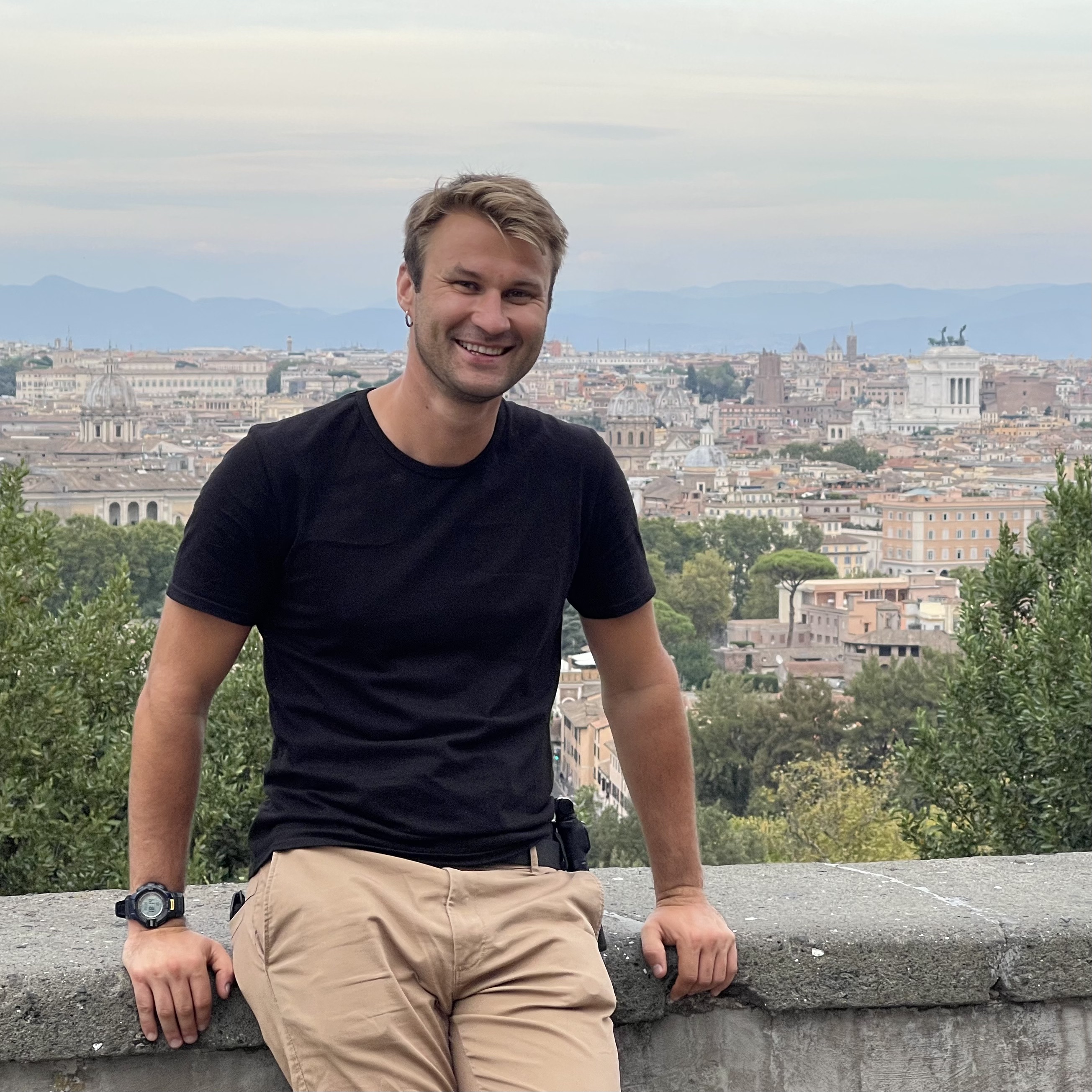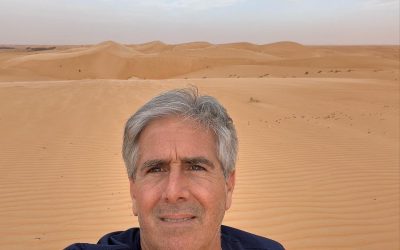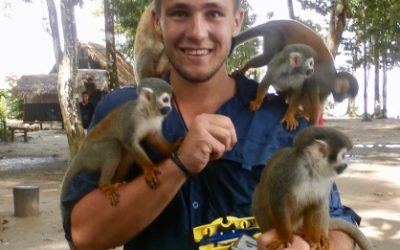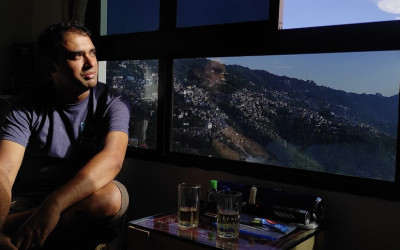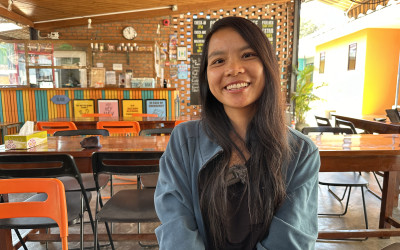Meet our long-standing friend from Ukraine, Orest Zub. Orest, a graduate of law and founder of the important Ukrainian portal OpenMind, has been the director of our two NomadMania award ceremonies while giving much of his valuable time based on his experience as a digital nomad.
While he will introduce himself better in the interview (read below) which is also available to be viewed on YouTube – we are happy to announce that Orest is now joining the NomadMania team as a partner. He will in fact be leading NomadMania in new directions and will be in charge of strategy development and implementation across the board. To this effect, you can expect a number of changes in terms of, well, almost everything.
What will not change is our commitment to the whole of the travel community, our passion for travel ‘out of the obvious and ordinary’, our family-style communication as well as our efforts to get better!
New Awards Ceremony will be held in Ukraine
In tandem with our new partner, we are very happy to announce our proposed date and venue for the 3rd NomadMania Travel Awards, which this year we plan to hold live, with a simultaneous live stream. Save the date of October 14th, 2023. We plan on holding the event in Lviv, Ukraine, at a safe underground location but this will still be a ‘gala event’ as much as it can be! The choice of venue is part of our desire to demonstrate our strong commitment to Ukraine and to showcase its beauty, relevance and independence as a country.
Additionally, in the week leading to this event, we plan on holding a trip to Kyiv and possibly further east for those who participate in the awards event. This will not be a ‘tourist’ event, as it obviously couldn’t and shouldn’t be, but rather a very poignant opportunity to meet people who have been affected by the war and understand the full consequences of this on their lives. We will give more details in due course and open submissions of interest soon, but if you would like to join a unique experience organised by Ukrainians themselves, then save the dates from October 8-13th for this.
We will only be able to accommodate a small group for security reasons and of course, ultimately, everyone can decide for themselves whether this is within their comfort zone or not – but we do believe as things stand now, even going to Kharkiv now is safer than heading to some of the destinations which tend to be popular for some extreme travellers.
Interview with Orest
We are very happy to welcome Orest to the team. If you have been following the Stories section on our Instagram, you will already see a new momentum there – and this is just the beginning!
Orest is now a partner at NomadMania and will be steering us to new heights. Already an accomplished blogger, entrepreneur and more recently a reporter on the happenings in his native Ukraine, his dynamic, go-getting style is evident pretty much immediately. He tells us all about his past, present, and a bit of his future, here…
Our interviews will be changing form and becoming visual as well as written over the next few months. To start off our new concept, our founder Harry Mitsidis interviews Orest Zub. You can follow their conversation by watching the video – filmed in mid-March 2023
– or if you prefer, read up the summary below…
***
Why don’t you tell us a little bit about who you are, your early years, and how you developed an interest in travel?
My name is Orest is in fact a Greek name. However, I’m originally from Ukraine. I was born and grew up in the city of Lviv, which is an amazing town in western Ukraine. Up to now, I have visited over 120 countries. First, my parents were travellers themselves. I was born in 1987, which was still the Soviet Union, and they actually met at a local travel club. So basically my father, and mother were travelling within their student travel club, all around Siberia, the Caucasus Mountains, Altai, and so on. So probably I was started somewhere in a tent in the mountains, who knows?
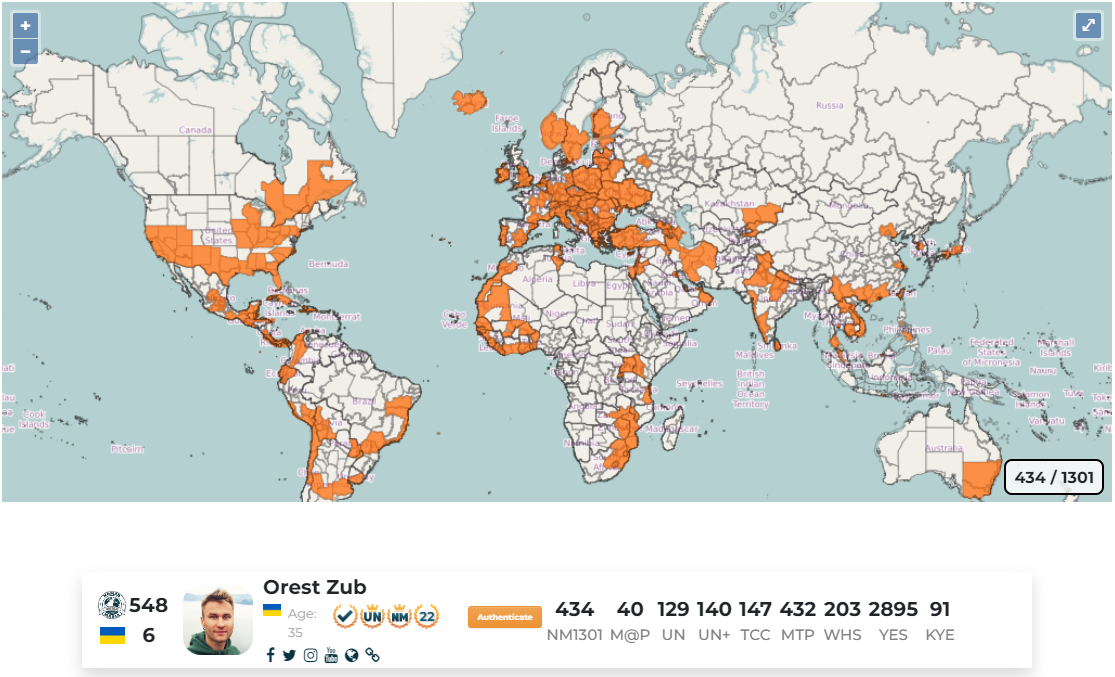
But the travel spirit is in my genes, I could say so and fortunately for me, in the 90s, when Ukraine was already independent and I was a secondary school student, my parents were sending me almost every summer to various international camps for students, for children, mostly in the neighbouring countries like Slovakia, Poland, Germany. The idea was you should invest in intelligence, development, and education. That’s why I am very fortunate. So, going this way, since I was a young kid in my early teens, I started seeing the world, which was rather a unique situation for a Ukrainian guy back then.
I maintained some pen-pal friendship relations with different people from European countries before emailing was popular. So, we were writing letters to each other. Then, when I enrolled in university, I was studying law. I relied on different international exchange programmes, some scholarships for students, and so on to see more of the world. It was then limited only to Europe because this academic life is active within, let’s say, the European Community. And my university was taking part in different international programs with other universities. So, I was very active, basically maybe a third of my academic time in my late years in university I spent travelling around Europe, participating in conferences, being a speaker, preparing some essays, etc.
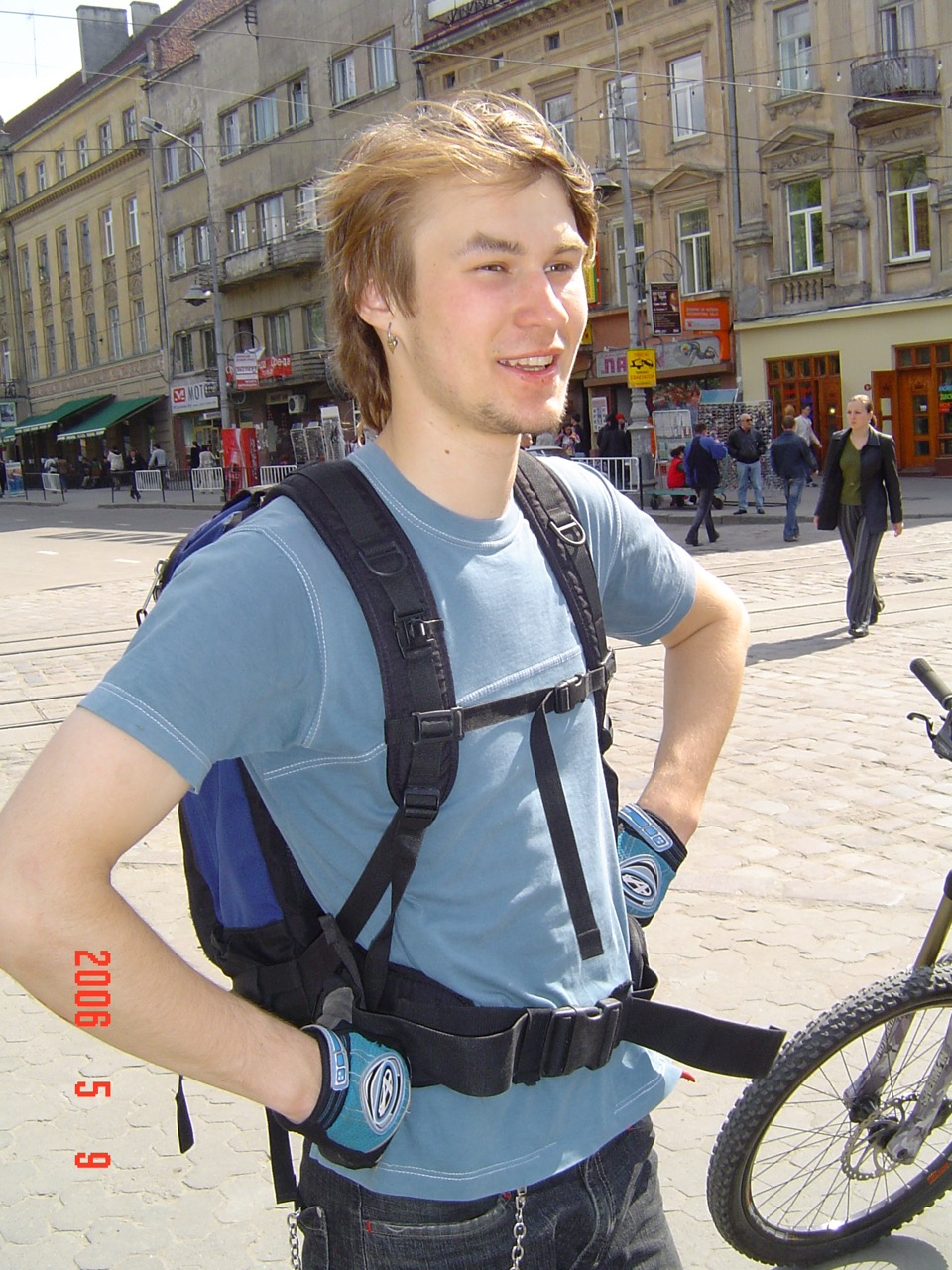
As you were travelling in Europe then, as a student, what would you say surprised you? What did you discover, which challenged your way of thinking, which made you think maybe out of the box?
First, if you’re talking about the early years of the millennium, the difference in the level of development and infrastructure between Ukraine and Western Europe was tremendous. At least it was much more visible than it is now. And even now we have a big difference, right? So many Ukrainian students who travelled to Western European countries and then came back to Ukraine suffered from the so-called cultural syndrome, like reverse culture shock.
A few friends of mine, let’s say some architects who visited a weekly study visit to Vienna, after coming back to Ukraine, didn’t want to leave their homes. They stayed at home because our trams are not as nice and well equipped as in Vienna or for many people, it was a mystery how the bus can arrive on time according to the schedule.
So, these things and the more you see, the more things you have to compare, the more opportunities you see around. This makes your curiosity grow. You start understanding things better. And very important was that you start implementing those positive practices back in your society, in your environment, trying to lift the standards. So, this was a big impact on me as a young student back then.
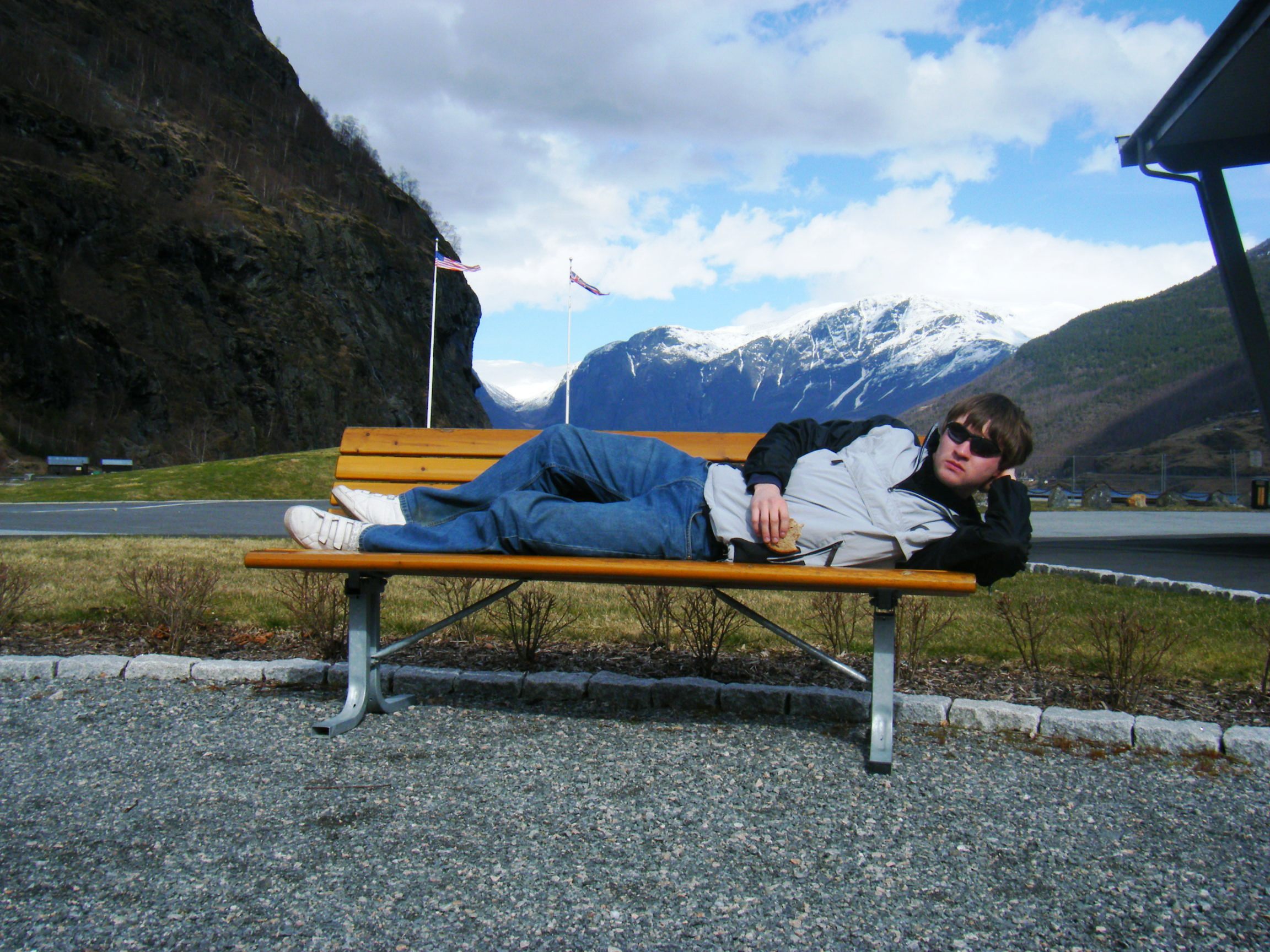
So we fast forward a few years. And you’re kind of reaching 100 countries. And from what I understand, you’re an influential blogger. Tell us a little bit about your blog at the time and how you were reaching out to the Ukrainian travel communities.
So, when I finished university, I enrolled in a few international internships, which were in Poland, Croatia, and India. And India was really something special because, first of all, it was the first country outside of Europe which we visited, and it was the first country I saw that you could say was less developed than Ukraine itself. Also, I spent six months there, which was a substantial amount of time outside of my comfort zone, and outside of the culture I was accustomed to. And that really affected me.
So, when I was in India, it was 2010, I was writing about my stay, and posting some pictures, it was the pre-Instagram era. So, Facebook was only, like, picking up back then. And people started to follow more. They became more and more curious, like, what is this guy doing back there? Like, not normal things, what early graduates in Ukraine would do. So, my audience started to grow, and when I came back from India, I started to share this.
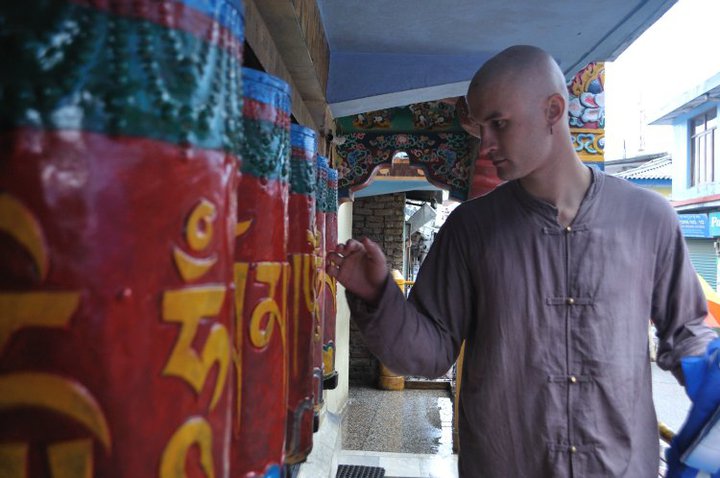
I started to share more in person. Some student organisations were inviting me to talk about my travel experience. I caught the travel bug. So, I had this desire to continue travelling more and more. And I liked this media presence, kind of. So, it came very naturally to me, but through the years. But if you’re talking about blogging as a profession that enabled me to travel, I would say that it’s still like luck, I would say. But there was some calculation to this that half a year before the football championship of Poland in Ukraine, which was held in 2012.
I started a travel guide in the English language about Ukraine online, things like how to buy a train ticket, how to cross the border, and so on, and called it ukrainetravelsecrets.com. There was a lack of information back then and there was a big demand. And by publishing these how-to travel tips about my native country, this grew into blogging, this grew into a career, and eventually I had a travel company for a few years, starting with the football championship.
So, my travel style back then was the following – I was actively working providing travel services during summer in Ukraine, and then together with my wife, we started leaving Ukraine around August and going somewhere as backpackers to multiple countries, multiple month trips. Usually somewhere like exotic, warm places. Most backpackers, start this way. So, we are talking about Southeast Asia, Central South America, and so on. And it was amazing. It was the life that many people were dreaming of. That was something that I was clearly picturing myself a few years prior to that, but things changed when the war in Ukraine broke up. Russia basically annexed Crimea, the war in Donbas started and tourism stopped in Ukraine.
I had to figure out what to do next. And having already extensive experience in online marketing, running and starting the business, of understanding how things work in general, in terms of content projects, online projects, and business, I continued that path. But on the Ukrainian side. So, I founded the website called openmind.com.ua, which was about self-help topics, travel itself, and business. There I started to serve the Ukrainians in Ukraine and outside Ukraine about consulting, about growing their business using different types of online tools, which was supplemented perfectly with self-help topics, motivation, time management, and obviously travel, which is a positive outcome of when you make things done well.
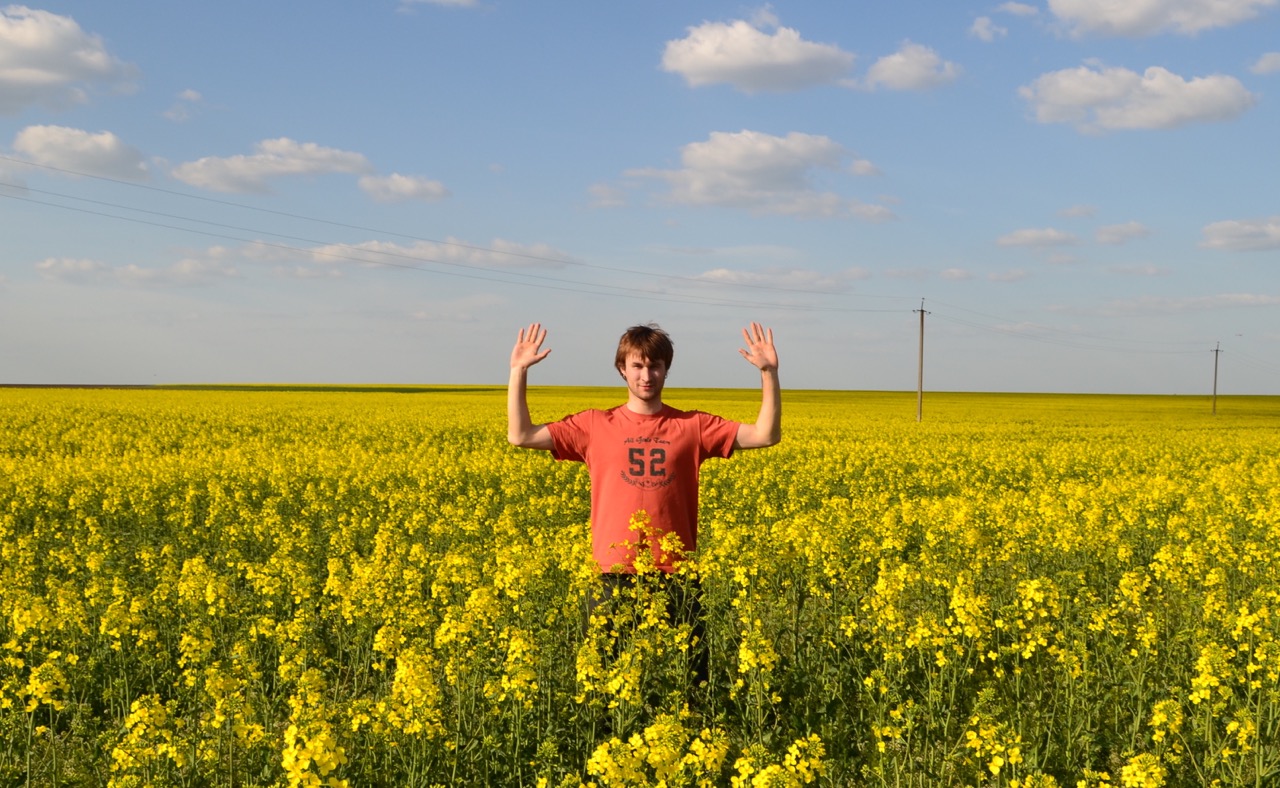
The Ukrainian travel community is quite vibrant and it’s worth remembering 2019, the year that we first met, when you held a NomadMania event in your native country for Ukrainian travellers. Why don’t you tell us a little bit about that event which took place in September 2019?
Absolutely, but a bit of background on how the Ukrainian community of travellers started to grow. In 2016, Schengen visas were waived for Ukrainians, meaning that nobody had to apply for a visa to travel to neighbouring Poland or other countries. And this opened so many opportunities for people to travel. All these cheap airlines started to come to our cities and obviously, these are the circumstances that motivate people to travel more and more. Ukrainians became a significant group in NomadMania itself. But if you’re talking about the event that followed our conference in the Azores, I was lucky enough to participate in one of NomadMania’s conferences. Our mutual friend Slawek Muturi, I’m really grateful to him because he introduced us, and somehow, he couldn’t visit the event. He knew probably a reliable, interesting guy like Orest that could substitute him.
Since then, we started to know NomadMania, we started to keep in touch and one of the ideas was how to put together Ukrainian travellers more formally, and how to participate in the active community building of NomadMania itself. I just came up with the idea. Why don’t we have an event in Ukraine? It happened in 2019. We had, like, well over 100 people at the event. Apart from Harry Mitsidis, NomadMania’s founder, there was the biggest Ukrainian traveller who had visited every country in the world, Konstantin Simonenko. Then there was the biggest traveller from Ukraine, Konstantin Liorek, who has visited most NomadMania regions. I would say, like, most of the top 20 Ukrainian travellers were there, in addition to other people who are really into the topic.
It was a great event and a nice combination of public speeches, a full hall of people listening to this, and good food. Basically, one of the missions of NomadMania is to provide a good understanding of the world. The way how Ukraine had been divided until back then didn’t really make sense in terms of understanding it. It was just cut within the administrative borders of provinces and so on. So, in order to give it more of this cultural, and geographical feel and encourage people to understand the country, we printed a map of Ukraine, and I gave it to the different participants. They were divided into groups, drawing how they would divide it, this was always a challenge because there were not enough regions to do it the most proper way…
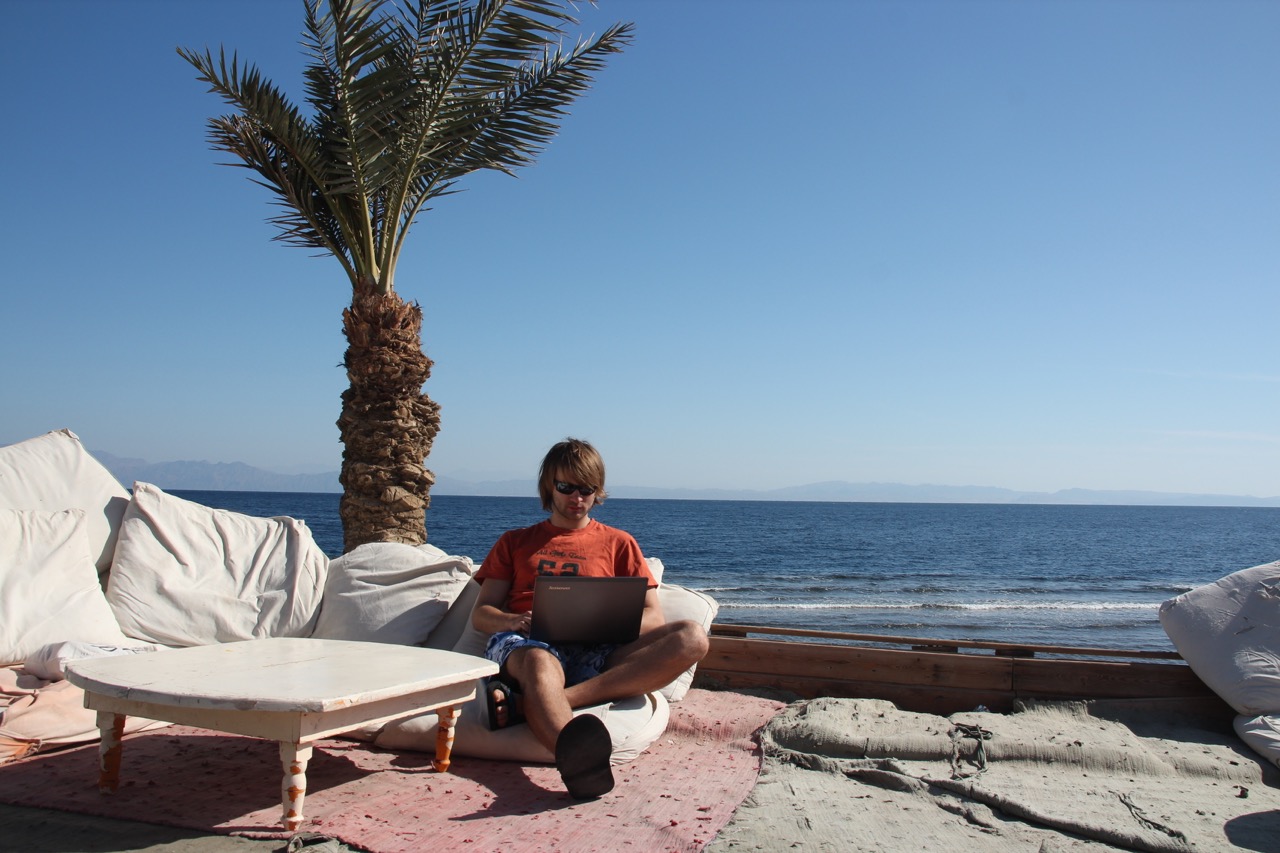
Now, Orest, in all those trips that you had to Southeast Asia, Latin America, Africa. Give us one story, if you want, that stands out, you know, that really affected you and that you will never forget.
I mean just like every traveller, I’ve got many stories, but the ones that affect you and stand out really like, guide you further in life. These stories come from your early experiences, right? I clearly remember the early first years when cheap airlines were entering Ukraine. It was in 2007 or 2008. There was a flight, a newly established flight, from Kyiv to Oslo. I was still a university student. So, I took that flight and flew to Oslo. Obviously, the cost of the flight was less than one day in Oslo itself. But anyway, I was limited in time and budget, so I took this Norway on a Nutshell trip.
It’s a one-day trip from Oslo you take a train, which takes you up in the mountains, the Flam Railway. It’s one of the highest elevated railways in Europe. And then from the top, from the pass, you sit on another smaller train that takes you down the curvy road to the start of the fjord. There you change into the ferry, and along the ferry, you get into the bus, which takes you down to Bergen. That’s the full-day trip. It has a nice package; you can buy it at a railway station and so on. And I was already going through this ferry in the middle of an amazing fjord, and you see the landscape from Lord of the Rings around you.
It was April, chilly still back then, and I was standing outside trying to get some pictures, and another guy showed up, much older than me, probably in his late 40s, or early fifties and we had a small chat. I took a picture of him. He took a picture of me. We exchanged our backstories. The only thing I remember from him is that he was working as a gardener, like a landscape designer, which is the cooler name for that profession. In Barcelona, I was just a student from Ukraine. Our ferry arrived near Bergen. That was it. Never seen each other again. Never exchanged any contacts, or emails, nothing.
Then my life goes on. I did these internships, and I find myself in India, in 2010. And then when I was travelling in the Himalayas Jammu Kashmir area, right? And Himachal Pradesh. And it was a very interesting time because the Dalai Lama had just turned 70 years old, as far as I remember. So basically, he was in Dharamsala in this mountain town with so many monks, with so many high-profile people from all around the world. And I was there at the same time with my friend.
So, in order to kind of blend with the crowd, we cut our hair and bought these orange monk outfits. And we’re walking on the streets, joining the crowds, the festivals, and so on. And I was walking, and I have a very good facial memory. And I recognise this face. I have probably seen it somewhere. So, I approach closer, and I recognised the guy by his camera because it has, like, a huge lens. So, I remembered I had been holding this camera, taking a picture of him in Norway, I approached the guy and hugged him. He got afraid because as a teenager I had already grown up, I was bald.
But then I explained to him, he’s like, “Yeah, I remember you”. So, let’s sit down and talk. And we talked for like 2 hours, we were telling each other about what happened in our lives in the past 3 years and after this, we never saw each other again. But the life story here is that you know, the time when we met, it was a top euphoric happiness moment, because how is that even possible? What is the likelihood? So, this was first, it taught me to stay on good terms with people, because if let’s say we had had some argument in Norway, what would happen in Dharamshala is like, just have a quick look and that’s it.
Second, you never know what life brings you. Everything comes around. Everything is illuminated. And it can appear very unexpectedly. And travellers have more chances to meet in this world because if you think about it, most people stay in their place all the time. If travellers move around, it means that probably they have more chances to meet. So that moment really is very memorable for me. I’m very grateful. And this is just one of the examples of many different crazy, amazing stories and meetings I have had all around the world.
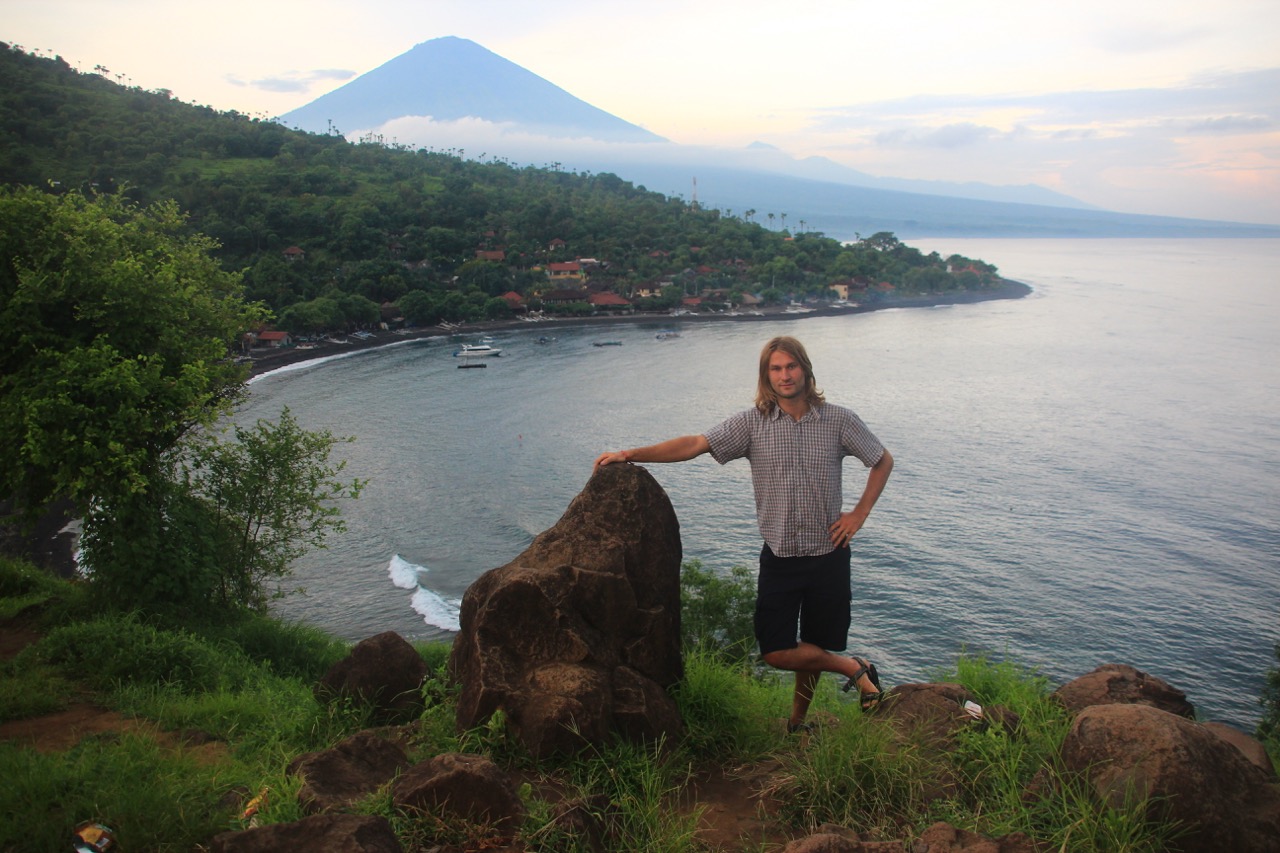
Well, you’re from Ukraine, and unfortunately, your country in recent months, known not by positive news. Why don’t you briefly tell us how the war in Ukraine has affected your life?
Well, that’s a very tough topic, obviously, and we can record a few more interviews only about this. In general, I feel sad that this happened in my country. I am still based in Lviv. I live in Lviv. This is my choice. You remember just one week prior to the Russian invasion, we were together on another NomadMania trip. And I remember how every group member was worrying about me. Some of them tried to persuade me not to return, but it just felt right to do so.
I never thought that the devastation that I experience as a traveller, what I have seen in many conflict zones around the world, some time would happen in Ukraine. And when it happens, you just have to act. You must act. You must take the decisions, about what to do, and how to participate. And I became partially a reporter.
So basically, I put aside many of the previous things that I’d been working on and for the first year actively participated as a reporter, organizing media trips, working with journalists, and attracting as much aid from international organizations to Ukraine as possible. Talking at conferences about Ukraine was like full-time, serious, serious work and it’s ongoing. We must ask ourselves, what can we do to be the most effective, and which will provide the biggest impact?
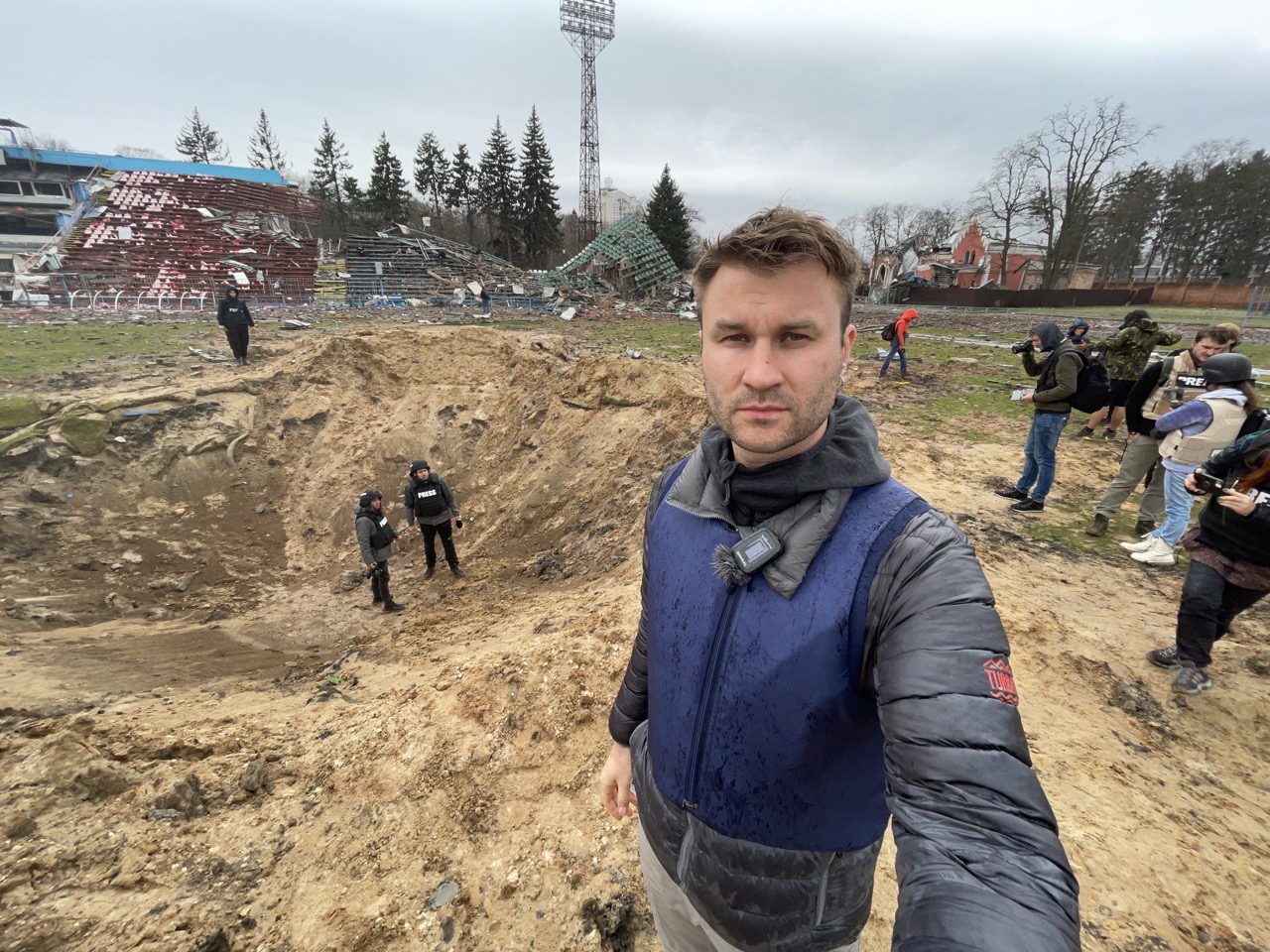
What has your greatest lesson been in the past year or so?
I think that you start realising how big the scale of this is and how many people are involved, it’s something that you cannot change just by yourself. Like, what you start realizing in this situation is that you must act in the things and levels where you can make an impact. This is probably very important because we as human beings, tend to worry about many things, obviously about the war, but about so many other things in life.
And people usually take something too personally or they talk, they think too much about it all around, like all the mass which is happening during our lifetime. And war is an example that is such a huge scale and obviously, such a big tragedy and everybody wants it to finish, but it’s still not finished. So, for me, the biggest lesson was, it doesn’t matter how terrible a thing has happened, try to cut it into pieces that you can handle and work with that.
Okay, well, let’s move to NomadMania. You’ve been a member of NomadMania now for four years. What do you like best about NomadMania?
The first initial idea of NomadMania, I suppose, was to show the beauty of the world and encourage people to travel deeper, beyond countries, going deeper into the regions. Basically, that’s why the entire map of possible listed places is cut to over 1301 regions. And this is what fascinated me from the first point because I was always into maps since I was three years old.
There were, like, all types of maps in my bedroom, and as soon as I studied all the capitals, you know, my father put a physical map. Then I studied all the mountain ranges, oceans, and deserts. He put, like, another one with, like a tectonic map. So, I was scanning, some types of soil in different countries. I was really into this. So, this was the first that attracted me, and I studied it. I spent hours just browsing the mouse in the area, trying to understand different things.
Secondly, as a traveller, if I see something on the map which stands out, I try to picture how it would look like in real life. And I cannot get settled until I see it with my own eyes. So, this was the first point.
Third, we are social human beings, and we always want to connect to other people. So NomadMania is a great community with all the listings of travellers divided by different countries and places they’ve been to. This gives you access to real people with whom you can hang out, with whom you can travel together, from whom you can study a lot, take advice, and so on. So, these things and then in the Azores, I met these people live, and I thought, like, this is my crew.
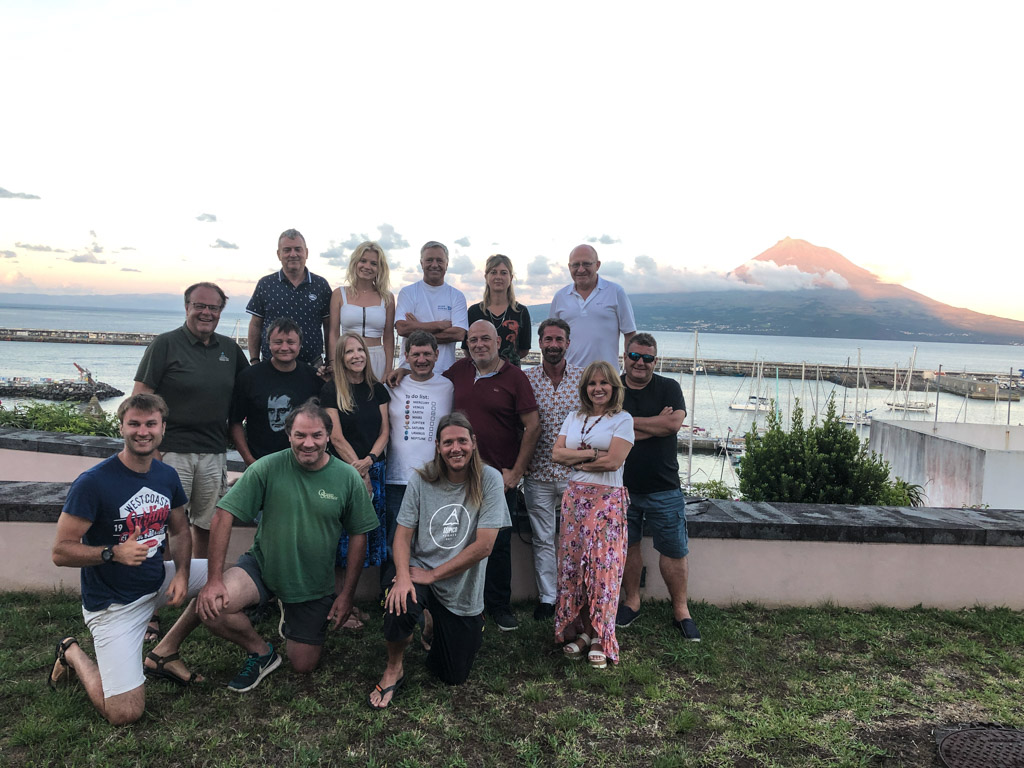
Now you’re coming in as a partner of NomadMania. What do you feel this role is going to mean for you personally, and how do you think it’s going to change NomadMania itself?
First, I am very grateful for this proposal. It was very unexpected for me, I mean during the time we knew each other when I had the option, I was helping the NomadMania a little bit and we did some tech stuff, these events, and so on, but this is something which takes our relations to a new level. And for me, I would say it was the proper timing for this because before I was all into my own projects. Then we had the war in Ukraine and the first year I put myself all there, fortunately, we saved the country. And NomadMania participated too in its way in this too.
I would say that the fact that I’m stepping in as a partner means a lot to me personally. It’s a great challenge, and it’s a huge responsibility with all the people who are watching this, with all the members of NomadMania, and in general, how people will see travellers and how travellers affect our modern society. I will use all the skills that I developed before to help NomadMania grow/ And I see NomadMania growing as a community of avid travellers who want to learn more. I see NomadMania as a platform with many more valuable internal connections between travellers that will stick people together and develop their curiosity around the world. We have many plans to develop the project. Probably we should not disclose all of them here and keep people surprised.
But one surprise that we can perhaps reveal is where the next NomadMania Awards will take place. I think this is something I’ve been pushing with my current position, but since the war in Ukraine started, I thought that one of the best ways to draw awareness, one of the best ways to support local people is to be there. Within the security measures and places where it’s safe. So, guys, this is the official moment to announce that the next NomadMania Awards events will be held in Ukraine in my native city, Lviv, in October 2023. We hope to have a live event for the first time, which will be televised over YouTube. It will be live and connect the world from Ukraine, and everyone is invited. So that’s going to be big. Now we can also mention that it will not be limited to Lviv, it is also something for extreme travellers. We will try to create the program in a way that there will be some additions to Kyiv and beyond. We’ll put more details out once the entire schedule is ready.
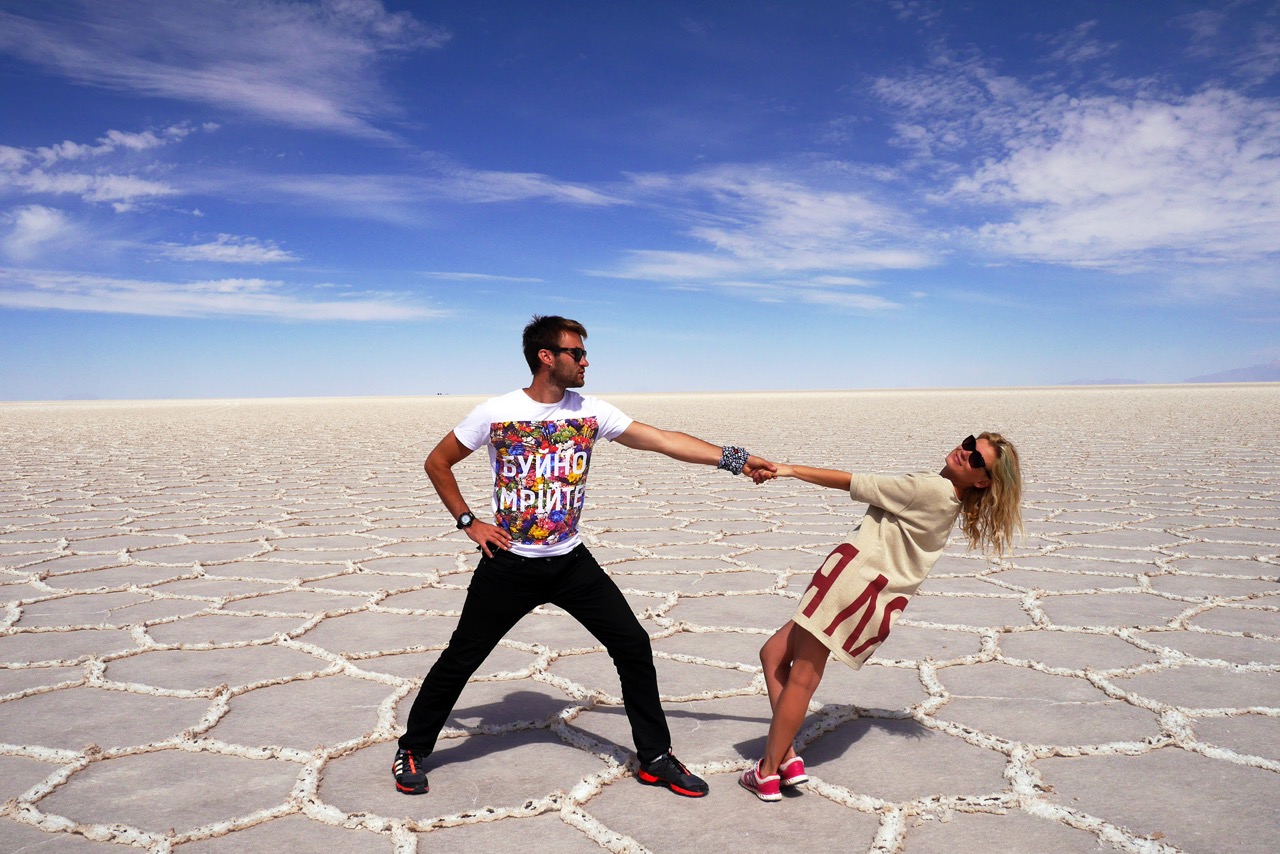
Orest, we understand that travelling from Ukraine now is rather difficult but do you have any travel plans for the next few months?
So, as I told you, I’m based in Lviv, all the airports are currently closed in Ukraine and the most convenient way is to travel by rail to Poland. Fortunately, we still have this operating and there are at least three daily trains to the border town of Przemysl in eastern Poland, and from there, you go in different directions. So, basically, for me, it’s kind of in terms of travel and logistics a step back to the 2000s when I was going this route many more times, but it also just adds an extra day for the departure and arrival, and it adds extra day for some planning, some deep thinking and going through your pictures when you come back from the trip. Right?
To tell you the truth, I and many Ukrainians are living in a mode where it’s hard to travel over a month ahead so it’s more agile. Despite this, most of my travel probably will be connected to setting up meetings for NomadMania in different places. I would like to visit a few international events where NomadMania can be present. I would say that recreational travel is probably on hold for me now. It will be more related to what the project can benefit from. Also, when I travel to different places, I visit newly established Ukrainian communities there because there are over 8 million refugees who left the country since the world started. So that’s the point for now.
At the same time, I think it’s very important, at least on my personal level, to visit places that also suffered from the conflicts, to understand them better and maybe bring this knowledge back. I would say I’m very curious about NomadMania’s upcoming trip to Libya. By this time, it’s already been announced, and we’ll see how this works. And at the same time, when I do travel, I remember that I’m the ambassador of NomadMania, but also an ambassador of Ukraine. So, whenever it’s possible to establish some good connections, I am up for that.
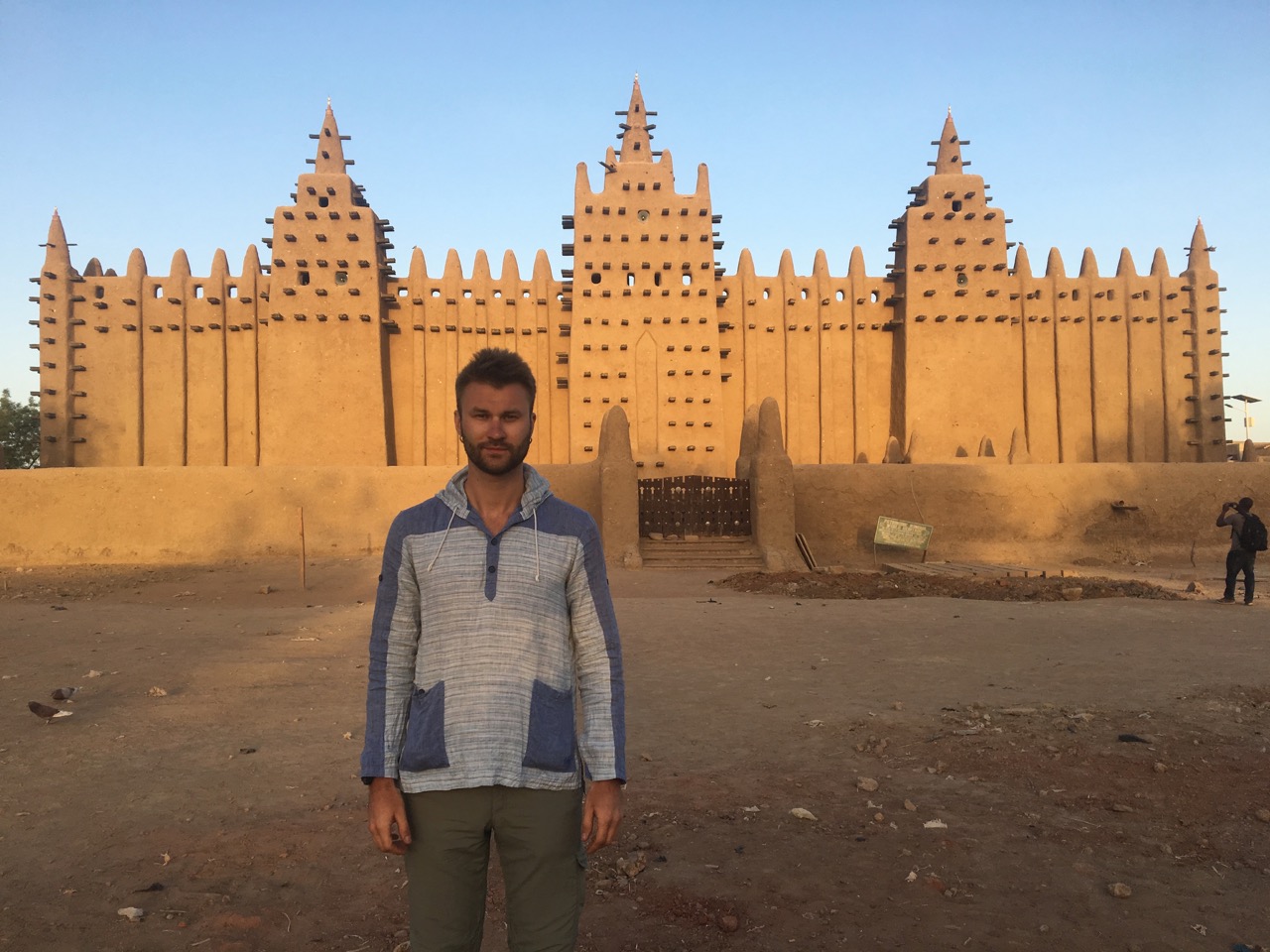
Finally our signature question: if you could invite any 4 people to dinner from any period in history who would be on your guest lists (you can have separate lists!)
So, first, I must say that with people with whom I wanted to talk personally, I already had dinner. One of them is our mutual friend Rauli Virtanen. He is like, the first person in history who visited every country in the world all the way back in 1988, as far as I remember. That’s very impressive. And I’m the kind of guy who is curious about other people, especially those from whom I can learn. Like if I see somebody who is a very interesting person and I can sincerely learn from them, I have no problem just writing an email or contacting them in another way and just trying to figure out how and where we can meet and buy a plane ticket just to have dinner with this person.
Right, obviously now the question was about these people that I was not able to meet. Since I’m from Ukraine, I would like to meet Askold and Dir, these are very interesting people, they are Bulgarians like the Nordic people who sailed down the Dnieper River developing a new trade route to the Byzantium empire and eventually settled in Kyiv. I’m curious how in those times you would know instead of going around the European peninsula, you would go inland in modern western Russia and try to fight your way down the Dnieper across Belarus, Ukraine to the Black Sea.
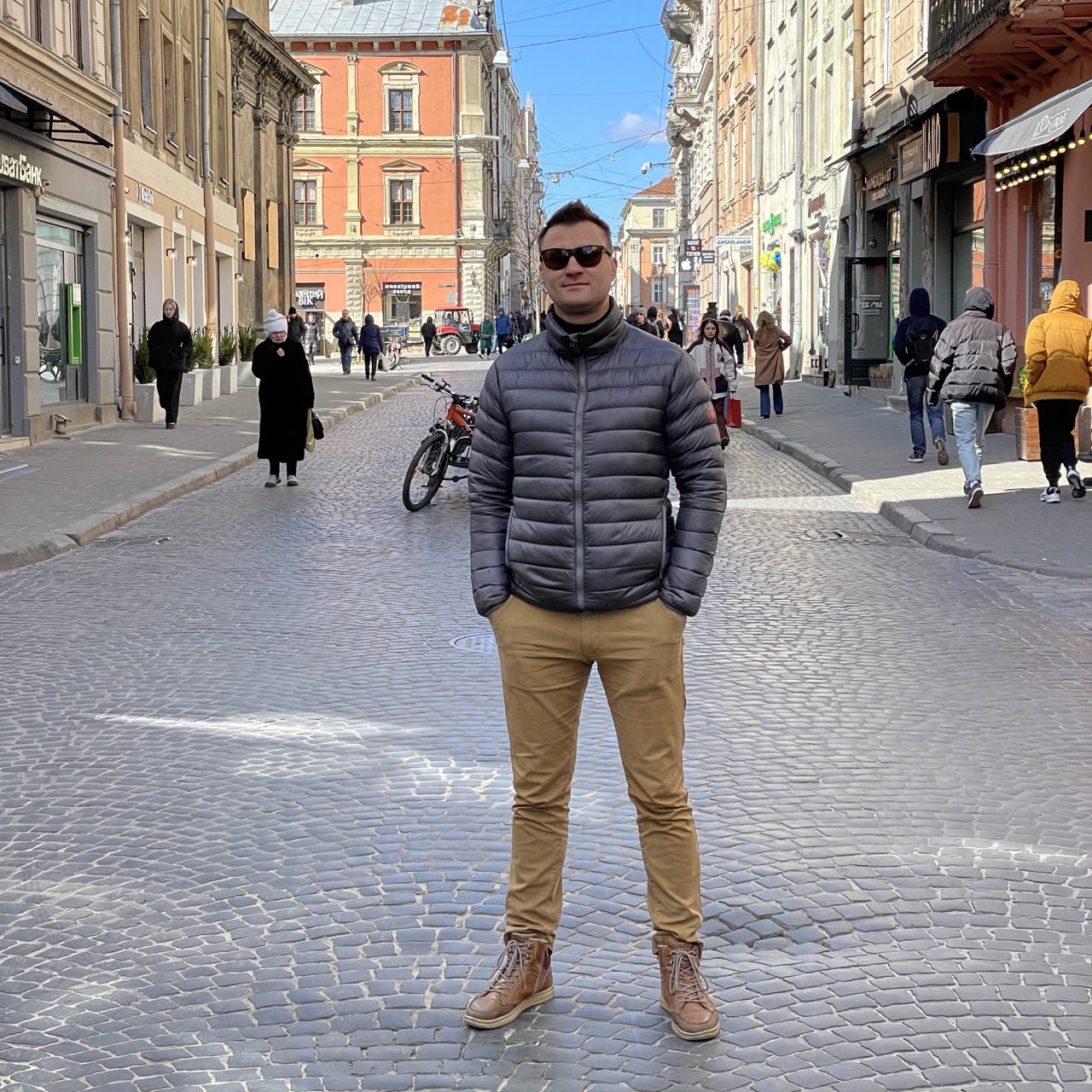
I would like to meet Orestes from Greek mythology. He was a son of a local prince or king in Peloponnesus. He travelled to northern Turkey, the modern Black Sea, and the Crimean Peninsula, rescuing his sister, taking her back to Peloponnesus, and becoming a king eventually. And while in Greece, I really read quite a few myth stories about the adventures of Orestes.
Finally, it would be some significant travellers from Victorian-era England and this time fascinates me a lot because, during the second half of the 19th century, there was already enough technological progress to travel the world, and people from royalty societies or some merchants had enough funds and access to trips and so on, they could see the world. And I think that was a very interesting time because people already knew they could communicate with each other through the continents, and cultures just were so much more organic back then, so much more raw than they are now.
